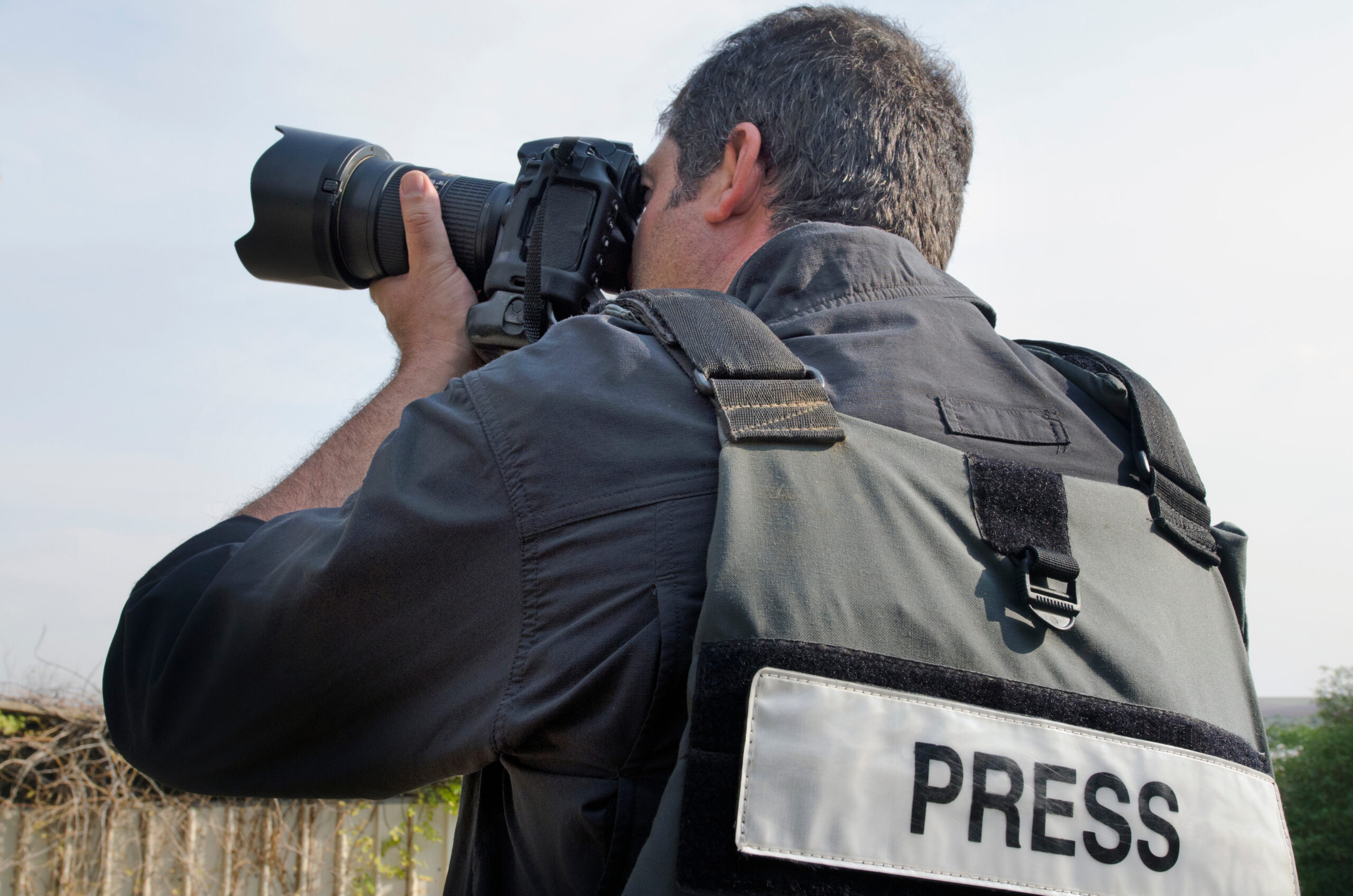Photojournalists and news photographers face a growing problem with copyright infringement. Those that are fortunate enough to have their photographs and video published in major news publications like the New York Times/Washington Post will often see a never-ending flood of online magazines, news aggregators, and other businesses misappropriate their work without bothering to pay a license fee. This can be extraordinarily frustrating, but is there anything that photojournalists and news photographers can do to fight back against copyright infringement?
Thankfully, there are a few key steps that photojournalists and news photographers can take. For example, you could stop taking interesting photographs and focus instead on stuff that nobody wants to see. People would generally stop stealing your photographs, but the downside is you’d likely be finding a new career at that point. Or… for those not quite ready to give up/focus on a new knitting career, I suppose you could read on for a few useful tips (but if you do take up knitting, I’ll take an XL sweater please).
Using Someone's Photos Without Permission is Copyright Infringement
Let’s start by putting a name to the problem. Whether you want to call it “stealing” or “without permission,” copyright infringement is essentially the act of displaying or publishing photographs, artwork, music, etc. without permission or license from the creator/author. In context, you’re a news photographer. The moment you release the shutter on your camera, you’ve created a photograph for which you are the copyright holder. When you put that photograph on your website or social media for the world to see, you’re unfortunately creating an opportunity for infringers to save or screenshot the photo for their own use. Sure… they could do the right thing by paying you or asking whether they can use the photograph… but it’s a lot cheaper and faster to just steal your photograph. And thus we have copyright infringement.
Who Owns a Photojournalist's Photographs?
An important but sometimes overlooked precursor to protecting your photographs is making sure that they are YOUR photographs. Wait a minute… didn’t you just say that I own the photograph the moment I press the shutter? Well, yes, but… most major publications have standard form agreements with their independent contractor or employee photographers that were likely drafted by a flock of lawyers (yes, trust me, a group of lawyers is a “flock” – no need to confirm). Those agreements will often define what rights, if any, you are giving up by selling/licensing your photography to the publication. Generally, you want to make sure that you grant a non-exclusive right to the publication while retaining the copyrights yourself. That way you get to license the photograph to others or, if necessary, pursue copyright infringers who have stolen your work. Simply put, the more ownership rights you retain, the better.
Photojournalists and News Photographers Should Register Their Photographs with the Copyright Office
Wait a minute… didn’t you just tell me that I own the copyright on every photograph I take? You do, but “owning” the copyright and “registering” your photographs with the US Copyright Office are different matters. Registering your photographs with the Copyright Office has tremendous benefits in the war against copyright infringement – you can sue infringers, obtain court-ordered injunctions stopping them from using your photos, and you might be able to recover statutory damages ranging from $750.00 – $150,000.00, depending on the circumstances.
It would be nice if people would just play nice and not steal your photographs, but the reality is that photojournalists and news photographers have always faced infringement of their work and likely always will. Having the weight of the US government behind you (i.e., registering your photos with the Copyright Office) is an important tool in your arsenal to fight back against infringers.
Registering Photos is Expensive and Burdensome, Right?

How Can Photojournalists and News Photographers Prevent Copyright Infringement Altogether?

There’s only one completely effective method to prevent copyright infringement altogether… never license any of your photos and never put any of them online. Basically, you’d need to find a new profession. You can make it more difficult for someone to steal your news photographs, but you can’t make it impossible.
For example, you could add watermarks to all your photos. But watermarks are fairly easy to remove/crop and many photographers don’t like using them as they distract from the photo itself. Some websites (like Photobucket) provide an option to disable the ability to ‘right-click’ an image and save it… that will stop some people, but others will just take a screenshot from their computer or phone. You could (and probably should) insist that publications that use your photograph provide a gutter credit with your name so the world knows who the photographer is, but in our experience, doing so is not likely to dissuade an infringer.
Unfortunately, an infringer committed to obtaining your photo for free is a difficult force to stop or even slow down. There is no magic solution to prevent infringement, so photojournalists may need to focus instead on fighting copyright infringers when found.
How Can Photojournalists Find Out if Their Photos are Being Stolen?
We represent a lot of photojournalists and news photographers here at CopyCat Legal. Sometimes they find out about a copyright infringer through dumb luck, but more often than not, our clients find the infringements themselves. Some clients sign up with companies (such as ImageRights, Pixsy, etc.) that use automated algorithms to scour the internet to find “matches” of your photographs and then attempt to obtain a license payment for any unauthorized uses. Others prefer to do reverse-image searches themselves, using tools such as Google or TinEye to upload their photographs and see whether any websites are using such without permission. None of these search platforms are perfect at finding each and every potential infringement out there, but they are invaluable in the never-ending war against copyright infringement.
Photojournalists and News Photographers Can Hire an Experienced Law Firm to Pursue Copyright Infringements
The good news is that photojournalists and news photographers are not alone in the war against copyright infringers. Whether you need help registering your photos with the Copyright Office, learning how to utilize reverse-image searching to track down infringers, or pursuing claims against infringers, your best bet is to hire an experienced and reputable law firm to work hand-in-hand with you.
Thankfully, we happen to know some cool cats that fit the bill. Our team is knowledgeable, fierce, and passionate about helping photojournalists and news photographers protect their valuable work and pursue infringements thereof. CopyCat Legal works with its many clients mainly on a contingency basis… meaning we only get paid when our clients get paid by infringers. You don’t owe us anything if we can’t collect, so there’s no risk to picking up the phone to see whether we can help you protect your photography from infringers. By the time we get through with most infringers, they most certainly wish they had paid you a fair price in the first place. It’s a painful lesson, but it’s one we’re happy to teach.

